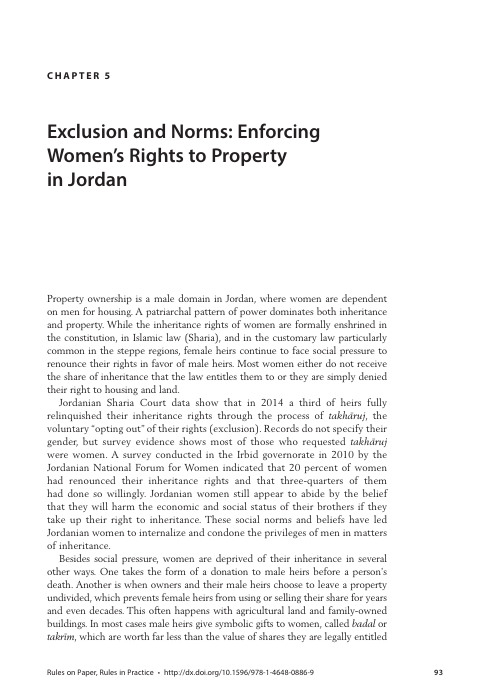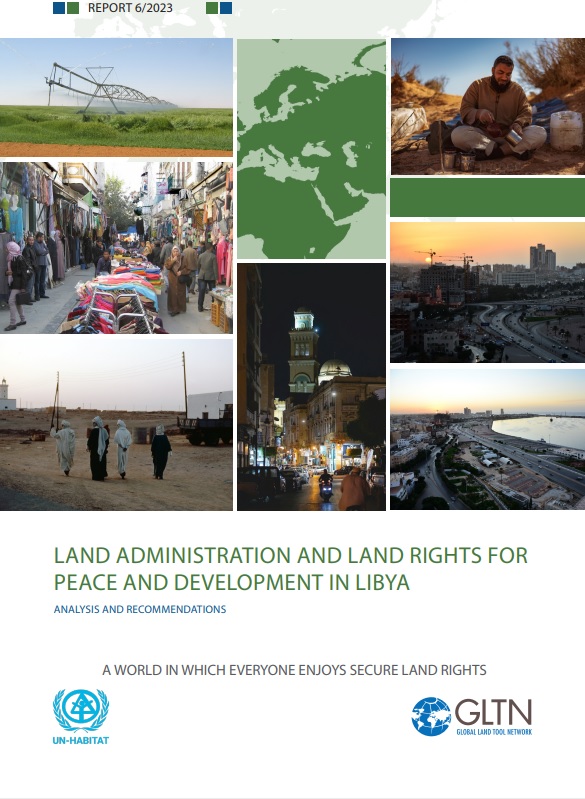Focal point
Location
The Global Land Tool Network (GLTN) is an alliance of global regional and national partners contributing to poverty alleviation through land reform, improved land management and security of tenure particularly through the development and dissemination of pro-poor and gender-sensitive land tools.
Secure land tenure and property rights are fundamental to shelter and livelihoods as well as the realisation of human rights, poverty reduction,economic prosperity and sustainable development.
The Global Land Tool Network (GLTN) main objective therefore is to contribute to poverty alleviation and the Millennium Development Goals through land reform, improved land management and security of tenure.
UN-Habitat through GLTN continues to work towards this with partners who include international civil society organizations, international finance institutions, international research and training institutions, donors and professional bodies.
Most developing countries use conventional land administration systems which cover less than 30 per cent of the country, leaving up to 70 per cent of citizens looking to informal and/ or customary approaches for their tenure security.
While there are many examples of good land policies, there are few policies that have been fully implemented due to lack of pro-poor, gendersensitive and largescale land tools. Further, conventional land titling approaches have largely failed to deliver their expected results since existing technical solutions are too expensive, inappropriate for the range of tenure found in developing countries, unsustainable financially or in terms of available capacity, and instead a range of land tenure options is more appropriate.
Core Values
Consequently, GLTN's core values and principles are founded in the development of land tools that are:
- Pro poor;
- Equitable;
- Sustainable;
- Affordable;
- Systematically large scale /scalable; and,
- Gender-sensitive, while taking into consideration:
- Good governance;
- Subsidiarity; and,
- The Continuum of Land Rights.
GLTN Objectives and Mandate
GLTN has developed a global partnership on land issues pulling together global partners, as well as many individual members. These partners include international networks of civil society, International Finance Institutions, international research and training institutions, donors and professional bodies. It continues to take a more holistic approach to land issues by working towards the following objectives:
- The establishment of a continuum of land rights, rather than just focus on individual land titling
- Improving and developing pro-poor land management, as well as land tenure tools
- Unblocking existing initiatives Assisting in strengthening existing land networks
- Supporting in the development of gendered land tools which are affordable and useful to grassroots
- Improving the general dissemination of knowledge about how to improve security of tenure
- Improving the general knowledge dissemination on the improvement of security of tenure
Resources
Displaying 1 - 5 of 289Exclusion and Norms: Enforcing Women’s Rights to Property in Jordan
Property ownership is a male domain in Jordan, where women are dependent on men for housing. A patriarchal pattern of power dominates both inheritance and property. While the inheritance rights of women are formally enshrined in the constitution, in Islamic law (Sharia), and in the customary law particularly common in the steppe regions, female heirs continue to face social pressure to renounce their rights in favor of male heirs. Most women either do not receive the share of inheritance that the law entitles them to or they are simply denied their right to housing and land.
Land Administration and Land Rights for Peace and Development in Libya
This report is a contribution towards the improvement of land management and land administration in Libya. It provides a description of the legal, institutional and spatial land-related frameworks in the country, and it analyses the key land administration functions: land tenure, land value, land use, land development and land disputes’ resolution. A list of recommendations complements the analysis, with the intention to trigger further discussions and interest in engaging on the topic.
Iraq - Arab Land Initiative
Iraq is one of the easternmost countries of the Arab Region. It is bordered to the north by Turkey, to the east by Iran, to the west by Syria and Jordan, and to the south by Saudi Arabia and Kuwait.
The current land systems in Iraq are greatly influenced by social and political insecurity and multiple waves of forced displacement over the last years, which have contributed to land tenure insecurity and land use conflicts.
****
This is a country profile for Iraq under the Arab Land Initiative.
Land Professionals in the Arab region. Roles, capacities and contribution to land governance and land tenure security
A functioning land sector is foundational to peace and stability, sustainable development, economic growth, food security, environmental conservation and poverty reduction in the Arab region. Effective and fit-for-purpose land administration is an important precondition for the functioning of the land sector and the foundation for good land governance.
Land Professionals in the Arab region. Roles, capacities and contribution to land governance and land tenure security
A functioning land sector is foundational to peace and stability, sustainable development, economic growth, food security, environmental conservation and poverty reduction in the Arab region. Effective and fit-for-purpose land administration is an important precondition for the functioning of the land sector and the foundation for good land governance.








